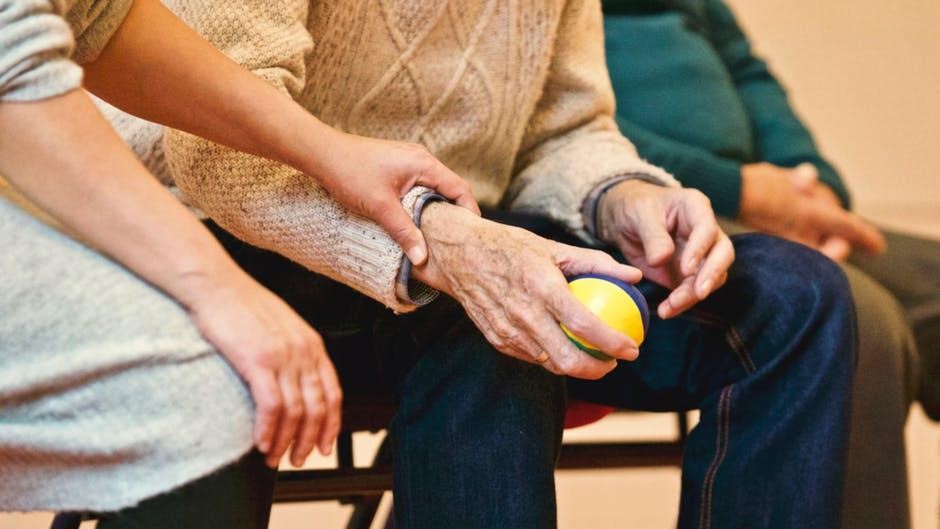Are our elders suffering with secret anxiety?

Collaborative Post
Sometimes it seems like anxiety is a young person’s game. We constantly hear of the terrible toll living in a constantly connected, always on digital world causes, of the uncertainty that younger generations face in their homes and careers, and about their body image crises and financial stresses.
The older generation are much more stoic, right? They have their worries, but they just get on with it. Only that couldn’t be further from the truth in some cases. In a lot of ways, getting older is like puberty – complete with hormonal changes and massive lifestyle adjustments.
Anxiety can often be very present in older generations – they just haven’t been raised to talk about it openly.
Diagnosing Anxiety In Elders
Everyone has worries from time to time, including our elder loved ones. But there’s a difference between natural worries and something like generalised anxiety disorder. These can often present as physical symptoms – like breathlessness, chest pains, headaches, excessive sweating or gastrointestinal issues. The problem is that all of these can be easily confused for something else – especially in elderly people who are often managing complex physical health conditions. Other anxiety disorders such as social phobias, OCD, panic disorder and post-traumatic stress disorder may also be present.
Who Is Most At Risk?
Anxiety disorders, just like depression, are under-diagnosed in the elderly population. There are risk factors which can make a person more susceptible to anxiety – these include chronic medical conditions like cardiovascular disease or diabetes, disturbed sleep patterns, misuse of prescription medications, confronting new physical limitations, or major lifestyle changes such as the death of a spouse or a move into an assisted living facility. Anxiety rears its head when stress is having a consuming impact on the life of the sufferer – if they will no longer join in with activities they used to love or start to place other limits on themselves.
What Does Treatment Look Like?
The first step in getting help is always communication. It can be very hard for elders, who tend to be more set in their ways of thinking, to admit that they are experiencing an issue and need support.
Once you have gained their trust, it may be easier to persuade them to get help. This is usually a combination of therapy and medication, although sometimes only one form of treatment is required.
The key thing is to reassure them that what they are experiencing is very common and very treatable. The older generation often don’t normalise any form of mental illness, so it can be helpful to explain that mental health needs looking after just like the physical side of things.
Loop in all the healthcare professionals who are managing other conditions your elderly loved one has. There may be implications for other areas of their treatment which need to be taken into consideration as part of a holistic healthcare plan.
Sometimes, anxiety can co-present alongside other health disorders such as depression – common in the aftermath of great change – so make sure they are screened for both conditions by a healthcare professional.
With a little love and patience, you can both overcome things and help your loved one to be fulfilled again.
Image via Pexels


This is a very interesting article as it’s like reading about my own Mum. She has physical illness, a lung condition that means she suffers from chest infections more often than most and these can be quite severe. However she also suffers from anxiety and will not recognise that as one of the issues. A common feature of her anxiety is breathlessness but due to her physical illness she will just say I have a chest infection, I’m ill and can’t help it. I have been with her at the doctors on three occasions and asked them about her anxiety… Read more »
Oh Catherine, this must be so hard for you. I don’t know if it will help to know it’s a very common situation. And I’m not going to say I have any answers. Your mum is probably terrified of the changes she’s seeing in her physical, emotional and social life, but doesn’t see how anxiety makes it all worse. So whether she would accept the sort of help on offer, like talking therapies, is hard to know. You’ve probably done this, but have you tried talking to a different GP at your mum’s practice? There may be someone with a… Read more »
Thanks Kathy. I was thinking about trying to see a doctor on my own and discuss the options. Last time I went with her I was made to feel like the horrible heartless daughter who was trying to make out she wasn’t ill but just mad. That made me so angry. Thank you for your support and I know I’m in a much better place than a lot of people as generally I do limit the time I go there so I have my own life. I’ll try speaking with the doctor again and see how that goes.